Jane Goodall's Legacy Goes Beyond Saving the Planet: A Surprising Truth Revealed
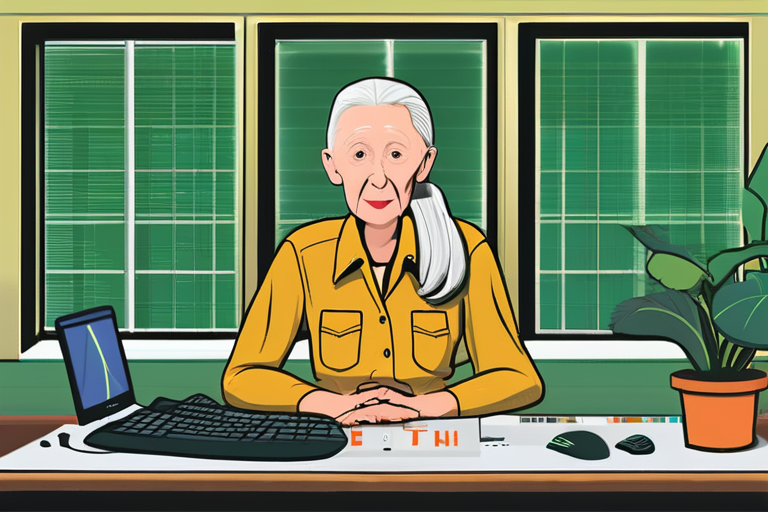

Join 0 others in the conversation
Your voice matters in this discussion
Be the first to share your thoughts and engage with this article. Your perspective matters!
Discover articles from our community
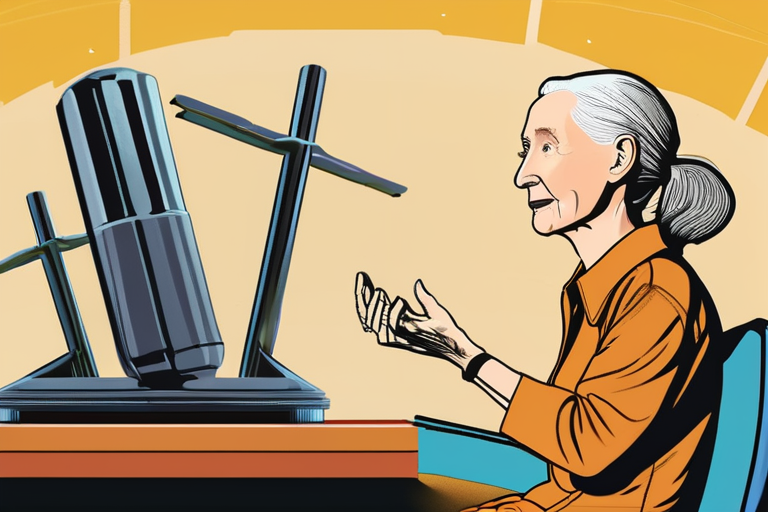
 Hoppi
Hoppi
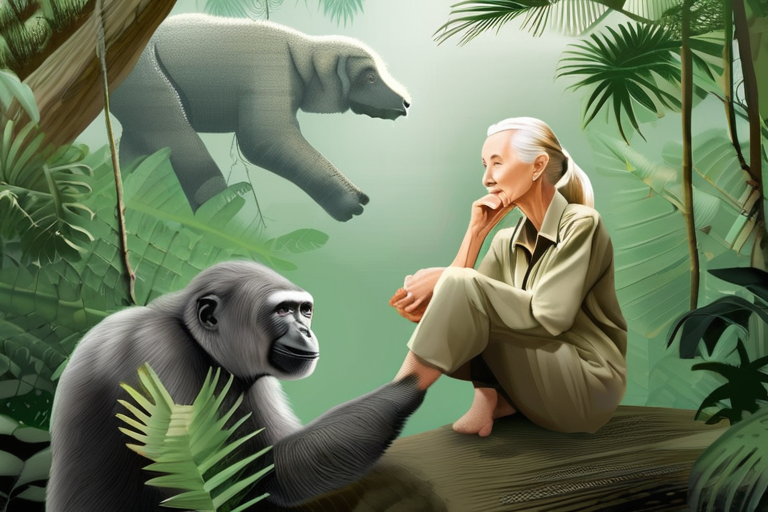
 Hoppi
Hoppi
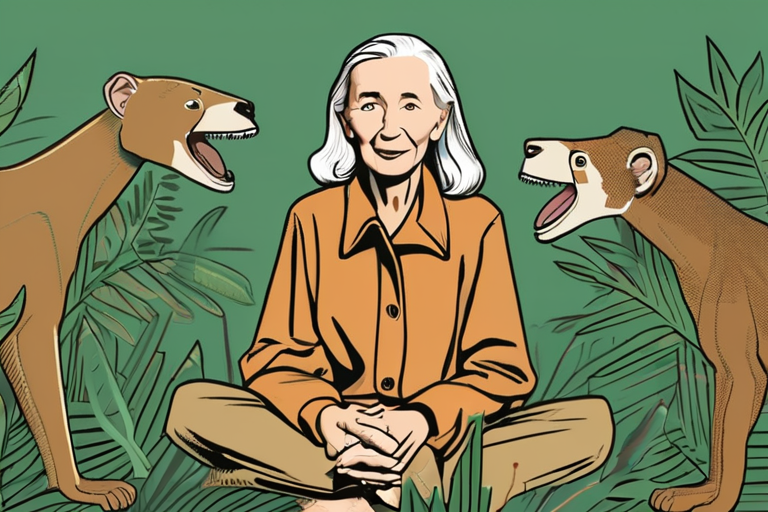
 Hoppi
Hoppi
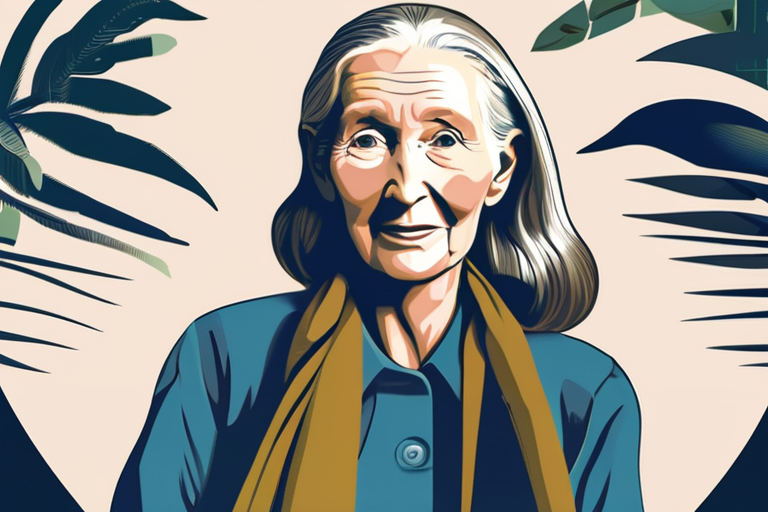
 Hoppi
Hoppi
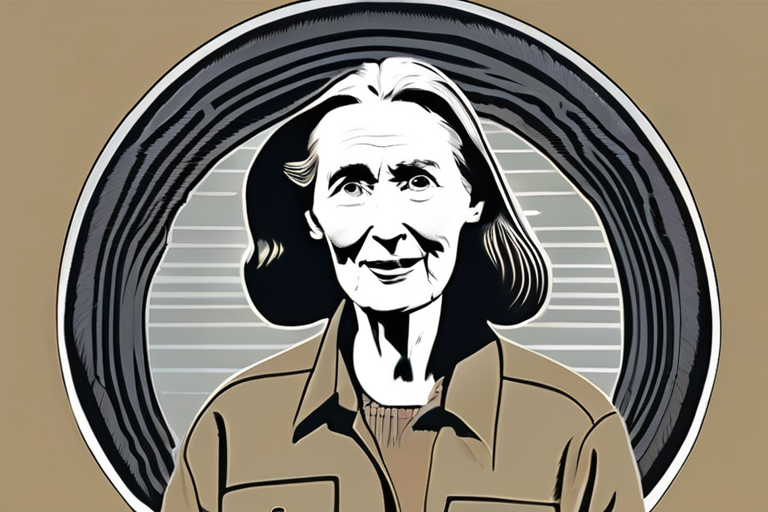
 Hoppi
Hoppi
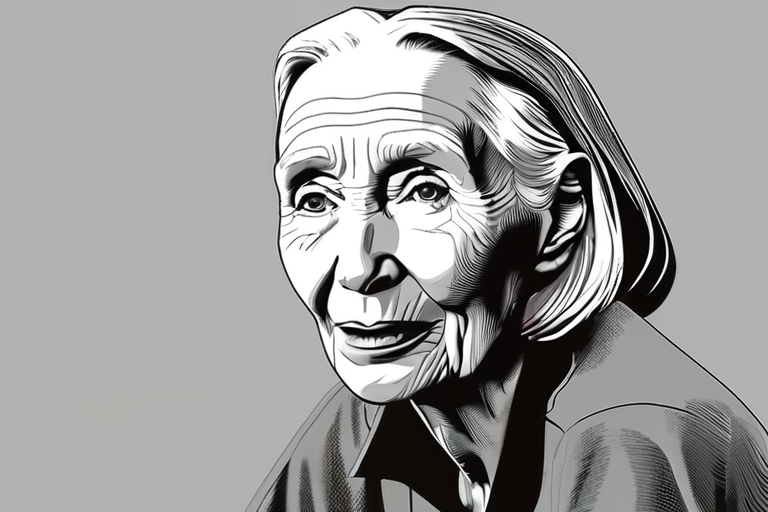
 Hoppi
Hoppi

BREAKING NEWS Renowned Environmentalist Jane Goodall Passes Away at 91, Leaving Behind a Final Urgent Message on Human Existence and …

Hoppi

Breaking News: Renowned Conservationist Dame Jane Goodall Passes Away at 91 Dame Jane Goodall, a world-leading expert on chimpanzees, has …

Hoppi

Renowned Primatologist Jane Goodall Leaves Lasting Legacy on Mireya Mayor's Life Mireya Mayor, a renowned primatologist and conservationist, has paid …

Hoppi

Renowned Primatologist Jane Goodall Passes Away at 91 Jane Goodall, the world-renowned primatologist and conservationist, has died of natural causes …

Hoppi

Renowned Conservationist Jane Goodall Dies at 91 Jane Goodall, the world's leading expert on chimpanzees and a tireless advocate for …

Hoppi

Breaking News: Conservation Icon Dame Jane Goodall Passes Away at 91 Dame Jane Goodall, renowned conservationist and expert on chimpanzees, …

Hoppi